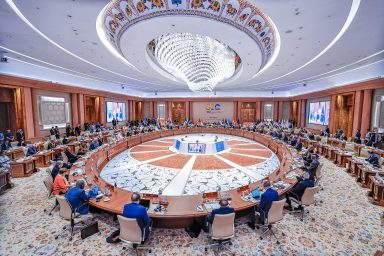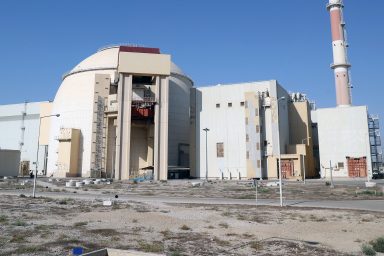Indian Prime Minister Narendra Modi’s government continues to punish critics of the regime, using false charges if necessary.
|
Listen To This Story
|
The arrest of a prominent Indian journalist and activist has triggered condemnation from an international human rights organization as well as verbal sparring between United Nations and Indian officials.
It all began with the arrest of Teesta Setalvad and two others late last month. While they are charged with a slew of offenses, including forgery and criminal conspiracy, Human Rights Watch said the only crime Setalvad committed was trying to hold authorities, including Prime Minister Narendra Modi, responsible for encouraging deadly sectarian violence 20 years ago.
“These arrests are clearly reprisals for pursuing justice for victims of the Gujarat riots and attempting to hold those who were in power accountable,” said Meenakshi Ganguly, South Asia director at Human Rights Watch.
The group said that, after her arrest, Setalvad wrote a complaint saying: “I seriously fear for my life given the animosity of the Gujarat state police.”
In 2002, more than 1,000 people, most of them Muslims, were killed in three days of violence after a train of Hindu pilgrims was set on fire. At the time, Modi served as chief minister of the state of Gujarat and critics say he condoned the violence that continued for months after the initial attack.
Since then, Setalvad has been involved in efforts to shed light on what happened and to hold government officials to account if they were involved. It is this activism that now got her arrested, Human Rights Watch and others say.
“It was only because of the efforts of activists like Setalvad, who worked with victims and witnesses, that justice has been possible for mass violence in Gujarat,” Ganguly said.
The arrests of Setalvad as well as two former senior police officer-turned whistleblowers, RB Sreekumar and Sanjiv Bhatt, came the day after an Indian Supreme Court ruling dismissed a petition brought by Zakia Jafri, the widow of Ehsan Jafri, a member of Parliament who was murdered during the riots.
Jafri’s petition challenged an earlier report that absolved Modi of any blame for the riots. In response, the court dismissed the idea that any “larger conspiracy” was responsible for the riots, and said Sreekumar and Bhatt were “disgruntled officers” who intended “to create sensation by making false revelations,” according to The Hindustan Times.
After the ruling, Amit Shah, Modi’s union home affairs minister, said Setalvad had “given baseless information about the riots to the police.”
The case has resulted in some friction between the United Nations and the government of India.
“Defending human rights is not a crime,” tweeted Mary Lawlor, the UN’s special rapporteur on human rights defenders, who added she is “deeply concerned” by the arrest. “I call for her release and an end to persecution by the Indian state.”
In addition, the UN’s Human Rights Office tweeted:
https://twitter.com/UNHumanRights/status/1541842068246564866?s=20&t=yqrkUhBT_LGOCBQDADA5qw
The Indian government quickly reacted to the criticism by suggesting that the UN should stay out of its affairs.
“The remarks by the [UN Office of the High Commissioner for Human Rights] are completely unwarranted and constitute an interference in India’s independent judicial system,” said Arindam Bagchi, a spokesman for the Ministry of External Affairs.
Following the 2002 riots, both India’s Supreme Court, as well as the country’s National Human Rights Commission, condemned Gujarati police, courts, and elected officials for failing to punish responsible parties. However, similar patterns of sectarian violence have followed across the country since Modi’s 2014 election as prime minister of India, the world’s second-most populous country and the world’s most populous democracy.
A Hindu, Modi has been accused of encouraging or at least condoning mob violence against India’s Muslim minority, according to the BBC.
A later Human Rights Watch report blamed authorities in Gujarat, including Modi, of stoking violence and failing to bring perpetrators to justice. “Setalvad is now being punished by those same authorities for attempting to keep the issue alive,” Human Rights Watch said.
The group said that, since then, authorities have filed “a slew of false charges” against Setalvad. Over the years, her homes and offices have been raided multiple times, her bank accounts frozen, and her organization has been barred from accepting foreign funding.
Human Rights Watch views her arrest the day after the ruling as part of a wider effort to make an example out of her and other regime critics.
“Setalvad’s arrest is part of escalating attacks on civil society and human rights activists in India, meant to send a chilling message to all who dare to seek accountability,” Ganguly said.
This story was written by a member of our Mentor Apprentice Program (MAP). It gives aspiring journalists an opportunity to hone their craft while covering national and international news under the tutelage of seasoned reporters and editors. You can learn more about the MAP and how you can support our efforts to safeguard the future of journalism here.




